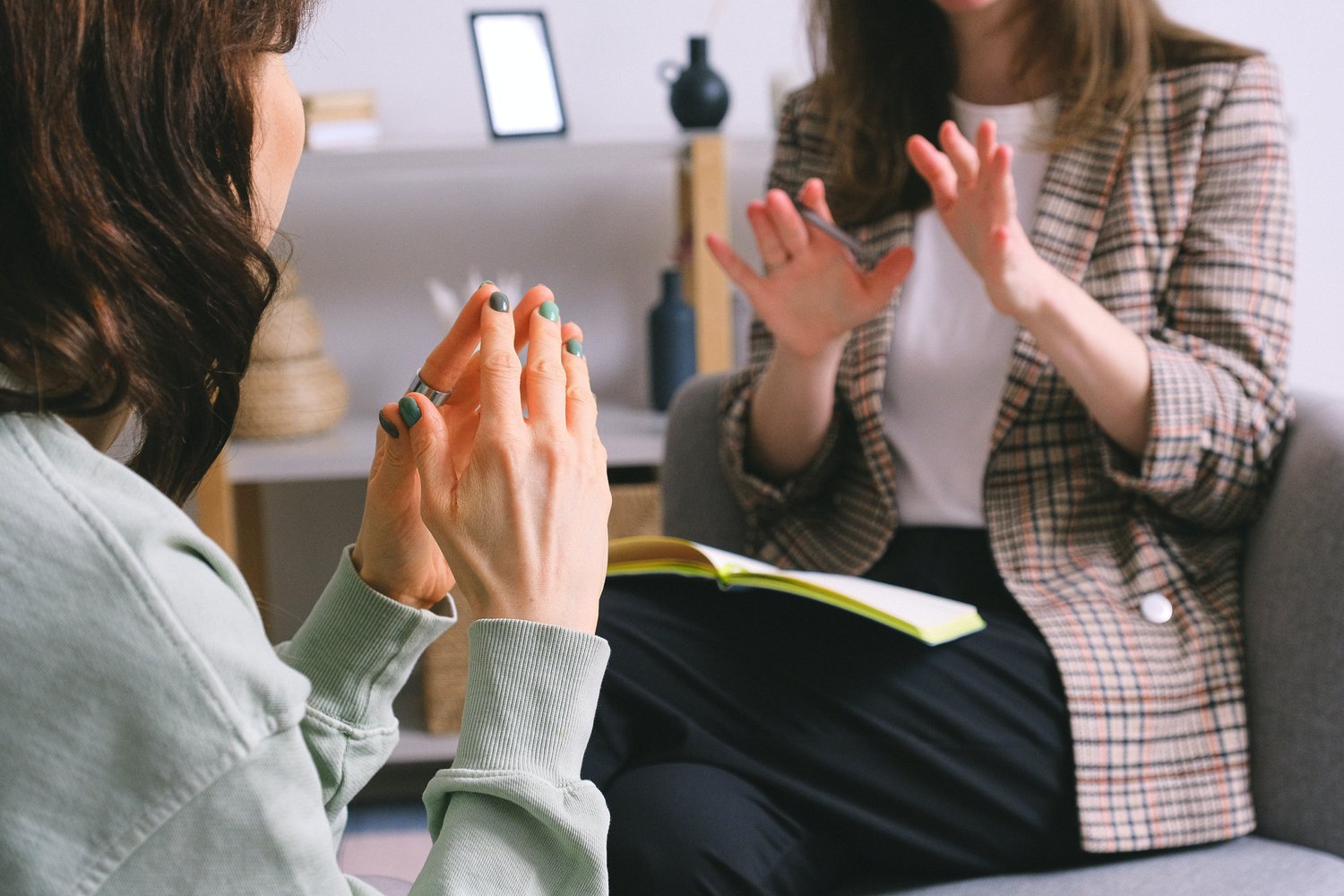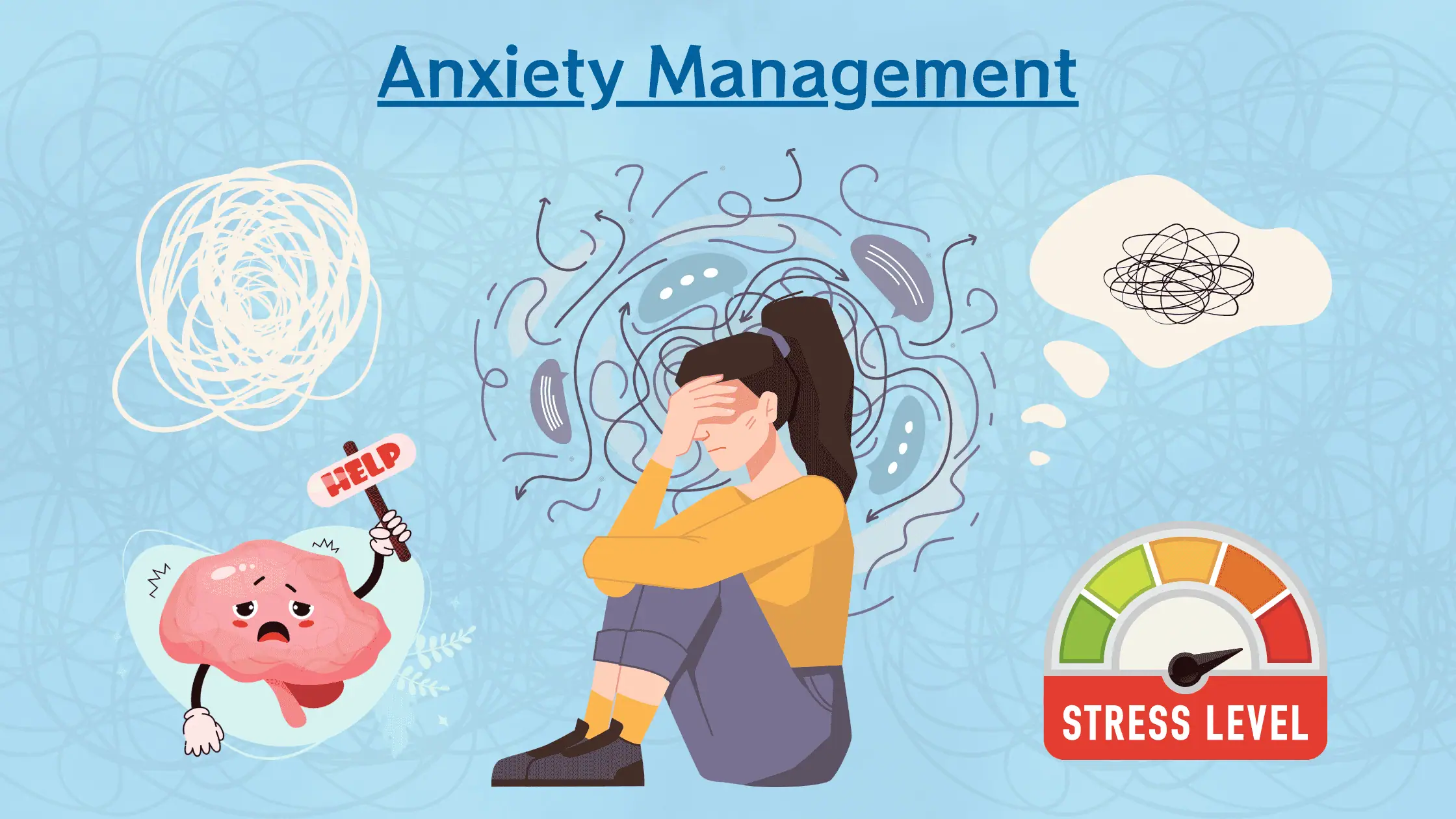Tailored counseling services for anxiety that fit your needs
Tailored counseling services for anxiety that fit your needs
Blog Article
Exploring Various Strategies in Coaching for Anxiousness Problem for Long-term Adjustment
When dealing with anxiety problems, it's vital to explore a range of therapy techniques. Each method offers one-of-a-kind understandings and devices to help you handle your signs efficiently. You may discover that integrating strategies can yield the finest outcomes. Recognizing the nuances of these techniques is essential to cultivating long lasting change. Suppose the right combination could launch a new degree of emotional well-being for you?
Recognizing Anxiousness Problems: A Brief Overview
Anxiety disorders, which influence millions of people worldwide, can greatly influence day-to-day live. You may experience frustrating sensations of concern or fret that seem uncontrollable. These sensations can result in physical signs and symptoms like a racing heart, sweating, or also dizziness. Common kinds of stress and anxiety disorders include generalized anxiety problem, panic attack, and social stress and anxiety disorder. Each has special signs, yet they all share a tendency to interrupt your routine and relationships.Understanding the origin of your stress and anxiety is crucial. It might stem from genes, brain chemistry, or life experiences. Acknowledging your triggers can assist you handle your reactions much better. It's vital to keep in mind that you're not alone in this struggle. Lots of people encounter similar obstacles, and looking for assistance is a strong step towards feeling much better. By learning more about stress and anxiety conditions, you're currently on the path to understanding and handling your condition better.
Cognitive-Behavioral Treatment: Challenging Negative Thought Patterns
In Cognitive-Behavioral Therapy, you'll begin by determining the adverse thought activates that add to your stress and anxiety. You'll function on changing them with more favorable choices once you identify these ideas. With each other, you'll build reliable coping approaches to assist manage your anxiousness in daily situations.
Recognizing Negative Thought Triggers

When you run into minutes of distress, identifying the particular triggers behind your unfavorable thoughts can be necessary in managing anxiousness. Start by taking note of scenarios that provoke feelings of fear or anxiety. Is it a congested room, an approaching target date, or a conversation with particular individuals? Write down these instances in a journal. This will certainly aid you recognize patterns in your reasoning. Notice physical sensations that accompany your unfavorable ideas, like an auto racing heart or rigidity in your chest. By identifying these triggers, you gain insight right into what's sustaining your stress and anxiety. Understanding these links is the very first step in testing those thoughts and inevitably gaining back control over your emotional feedbacks.
Replacing Ideas With Positives
Testing unfavorable idea patterns is a crucial action in changing your attitude and decreasing anxiety. You might frequently locate yourself caught in cycles of self-doubt or disastrous reasoning. As opposed to letting these thoughts determine your feelings, method replacing them with sensible choices or favorable affirmations. For instance, when you assume, "I can not handle this," move it to, "I can manage challenges one step each time." This basic change can considerably impact your psychological state. Frequently recognizing and responding to these unfavorable ideas helps create a healthier interior discussion. Bear in mind, it takes time and effort, however regularly practicing this strategy can bring about enduring change, encouraging you to deal with stress and anxiety with renewed self-confidence and strength.
Structure Coping Strategies With Each Other
Replacing negative ideas is just the beginning of taking care of anxiousness successfully. To create enduring change, you require to build coping strategies that encourage you. Cognitive-Behavioral Therapy (CBT) assists you recognize and test those purposeless thought patterns. With each other, you and your therapist can check out just how these ideas impact your feelings and behaviors.Start by establishing useful techniques, like journaling or mindfulness exercises, that permit you to face stress and anxiety head-on. When you encounter your fears slowly, you'll find out to respond differently.

Mindfulness and Acceptance-Based Approaches: Growing Present-Moment Awareness
As you browse the complexities of anxiety, incorporating mindfulness and acceptance-based techniques can considerably boost your ability to grow present-moment recognition. By focusing on the present moment, you'll locate that you can observe your ideas and feelings without judgment (Counseling services for anxiety). This method assists you acknowledge your anxiousness without really feeling overwhelmed by it.Engaging in mindfulness workouts, such as deep breathing, body scans, or directed reflections, allows you to ground on your own in your current experience. Acceptance-based approaches urge you to welcome your feelings instead of battle against them. When you accept your sensations, they shed their power over you.Incorporating these practices right into your daily routine can change how you react to anxiety. You'll create durability and find out to navigate stressful scenarios with higher ease. Inevitably, cultivating present-moment recognition lays the foundation for long-term modification, encouraging you to lead a much more satisfying life
Direct Exposure Therapy: Facing Concerns Progressively
Exposure therapy assists you face your worries in a progressive method, making it much less overwhelming. You'll discover strategies to encounter anxiety-provoking circumstances step by step, while likewise developing coping methods to handle your reactions. This technique equips you to take control and decrease stress and anxiety in time.
Gradual Exposure Methods

When facing anxiousness, slowly confronting your anxieties can be an effective means to gain back control. This technique, recognized as progressive exposure, involves slowly revealing yourself to the situations or things that trigger your anxiousness. Beginning with much less intimidating circumstances and slowly work your way approximately more tough ones. As an example, if you're worried of public speaking, you could begin by speaking before a mirror, then advance to sharing ideas with a friend, and ultimately address a little team. Each step aids desensitize you to the fear, developing your self-confidence in time. Bear in mind, it's vital to rate yourself and celebrate little triumphes as you relocate through this procedure, reinforcing your capacity to take care of stress and anxiety efficiently.
Building Coping Approaches
Building efficient coping strategies is essential for handling stress and anxiety, particularly as you challenge your concerns slowly - Counseling services for anxiety. One powerful method is direct exposure treatment, where you start by encountering your fears in a controlled manner. Begin with less frightening circumstances and slowly work your method as much as more challenging scenarios. This gradual exposure helps desensitize you to anxiety sets off, making them much less overwhelming.Incorporate leisure strategies, such as deep breathing or mindfulness, to relax your mind throughout direct exposure. Track your development, commemorating tiny success in the process to increase your confidence. Bear in mind, it's all right to take your time; the goal isn't perfection yet consistent enhancement. By constructing these methods, you'll empower yourself to browse anxiety and embrace life more totally
Psychodynamic Treatment: Discovering Root Causes of Anxiety
Psychodynamic treatment discovers the unconscious mind, check here revealing the source of your anxiety. By analyzing your ideas, feelings, and previous experiences, this approach helps you reveal underlying disputes and unresolved concerns that may add to your present stress and anxiety. You'll function with a specialist to check out youth experiences, partnerships, and emotional patterns that form your actions today.As you gain understanding right into these much deeper layers of your psyche, you'll begin to acknowledge exactly how previous events affect your present actions. This understanding can result in catharsis, allowing you to refine emotions you could have suppressed.Through the therapeutic partnership, you can also recognize defense reaction that might have developed gradually, offering a clearer course to transform. Eventually, psychodynamic treatment furnishes you with the devices to address your anxiousness at its core, promoting long-term improvement in your psychological well-being.
Integrative and All Natural Approaches: Integrating Strategies for Greater Efficacy
Integrating numerous therapeutic methods can boost your journey toward taking care of anxiety better. By integrating components from cognitive-behavioral therapy, mindfulness techniques, and all natural methods, you can create an individualized method that resolves your special requirements. For circumstances, you may use cognitive-behavioral techniques to test negative thought patterns while integrating mindfulness workouts to ground on your own in the existing moment.Additionally, exploring alternative methods such as yoga or meditation can advertise relaxation and minimize anxiousness signs and symptoms. This blend allows you to develop better self-awareness and resilience.Experimenting with these varied approaches can aid you uncover what reverberates most with you. Bear in mind, it has to do with locating a synergy that works, rather than sticking to a solitary strategy. This integrative approach not only supplies immediate alleviation however likewise fosters long-term skills for managing anxiety, encouraging you to recover control over your life.
The Role of Assistance Equipments: Building Resilience Via Link
While it might appear that taking care of anxiety is a solitary trip, having a solid support system can play an essential role in your durability. Bordering yourself with understanding friends, family members, or assistance groups develops a risk-free space where you can honestly share your experiences and sensations. When you attach with others, you remind yourself that you're not alone in this struggle.These partnerships use support and can provide functional coping approaches that have actually benefited others. It's likewise a possibility to gain point of view; pals can aid you see scenarios differently, lowering feelings of isolation.Moreover, emotional assistance fosters a sense of belonging, which can substantially minimize anxiousness signs and symptoms. By leaning on your support group, you can develop strength and tackle difficulties better. Bear in mind, connecting for assistance signifies toughness, and it can make all the difference in your journey towards managing anxiety.
Often Asked Inquiries
What Are the Usual Signs of Anxiousness Problems?
You might experience restlessness, fatigue, trouble concentrating, impatience, muscular tissue stress, and rest disturbances. Physical symptoms can include quick heartbeat, sweating, and shivering. Identifying these signs early can assist you seek suitable assistance and treatment.
For How Long Does Treatment Normally Last for Stress And Anxiety Conditions?
Therapy for stress and anxiety conditions commonly lasts anywhere from a few weeks to a number of months. It truly depends upon your private needs, progress, and the techniques your specialist makes use of to aid you handle your stress and anxiety successfully.
Can Medicine Be Utilized Together With Therapy for Anxiety?
Yes, drug can definitely be made use of along with treatment for anxiety. Combining both approaches typically improves treatment effectiveness, helping you manage symptoms while checking out underlying issues through therapy (Counseling services for anxiety). Always consult your health care supplier for individualized recommendations
Exist Self-Help Techniques for Managing Anxiousness?
Yes, there are several self-help approaches for handling anxiety. You can practice mindfulness, participate in routine exercise, keep a balanced diet regimen, develop a routine, and make use of deep breathing methods to help lower stress and anxiety signs effectively.
Just how Do I Know if I Required Professional Assistance for Anxiety?

Report this page